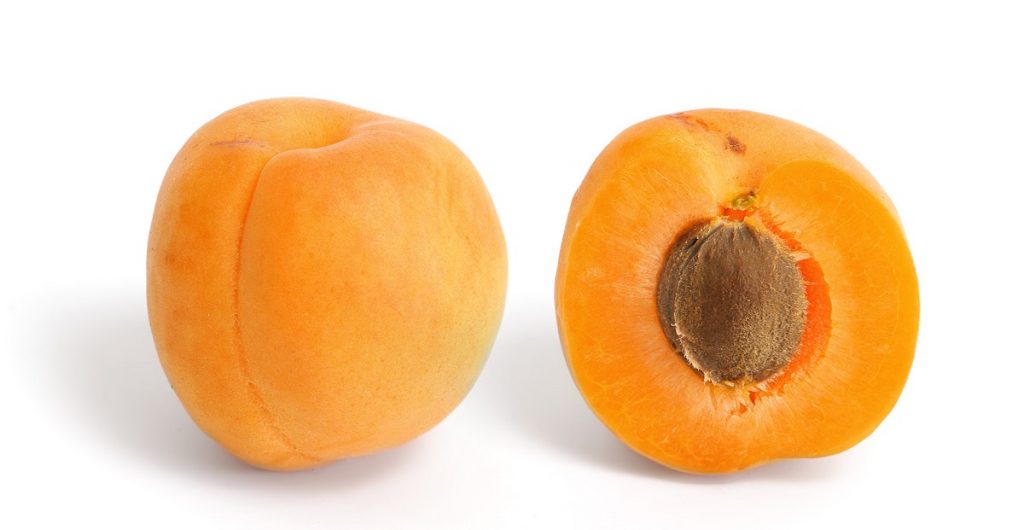
About Apricot – The Healing Fruit. Colored in beautiful shades of golden and orange, this succulent, velvety fruit, the apricot, is a treat to eat. The health conscious will unanimously vouch for the various nutritional and health benefits of this delectable delight.
Fresh apricots can be consumed directly, but dried apricots are also used as a natural remedy for certain ailments. The fruit is a drupe similar to a small peach, from yellow to orange, often tinged red on the side most exposed to the sun
According to the UN Food and Agriculture Organization, world production of apricots in 2017 was 4.3 million tonnes, led by Turkey with 23% of the world total. The flesh is usually firm and not really juicy. Its flavor can vary from sweet to tart. The single seed is remainsclosed in a hard, stony shell, often described a “stone” or “kernel”, with a grainy, soft texture except for three ridges running down one side.
Apricots are susceptible to different diseases whose dependent importance is distinct in the major production regions as a consequence of their climatic differences. Bacterial diseases involve bacterial spot and crown gall. For example, hot weather as experienced in California’s Central Valley will often cause pit burn, a condition of soft and brown fruit around the pit. Unlike peaches, apricots are not affected by leaf curl, and bacterial canker (causing sunken patches in the bark which then spread and kill the affected branch or tree) and silver leaf are not serious threats, which means that pruning in late winter is considered safe.
Table of Contents
Apricot Health Benefits:
Learn about the numerous health benefits apricots have to offer.
1. Nutritents!
Apricots are a rich source of Vitamin A, magnesium and potassium carbonate. Vitamin A is instrumental in enhancing and improving eye vision. It works as a vigorous antioxidant, preventing the onset of conditions such as macular degeneration and cataracts.
Apricots contain copious amounts of Magnesium. Research suggests that due to the strong presence of Magnesium, apricots promote longevity, superior health and also stabilize and maintain the blood pressure.
Dried apricots are an especially loaded source of potassium carbonate. This mineral is highly recommended for individuals with arrhythmia, or those who have suffered from Heart Failure.
Apricots also containiron and copper. Once the apricot is ingested by the system, these two compounds help in the formation of hemoglobin. This fruit is an ideal and healthy option for anemia sufferers and women who have a heavy menstrual cycle.
2. Great For The Skin!
Eczema, scabies, skin itchiness and sun burn- these skin problems are a source of great discomfort if not treated immediately. Apricot oil, obtained from the kernel of an apricot fruit, is absorbed quickly by the skin and provides immediate relief.
3. Dietary Fiber
Dietary fiber is not only essential for the normal functioning of the digestive system, but it also plays a key role in preventing constipation. Apricots are rich in cellulose and pectin. These dietary fiber elements act as natural laxatives and promote smooth bowel movements.
A blended mixture of honey, apricot and water can be used to effectively treat fever. This mixture not only provides all the essential nutrients and minerals to the body, but also detoxifies it.
Possible health concerns:
The benefits of apricots are numerous, but individuals who have a history of calcium-oxalate kidney stones should refrain from consuming this fruit in its fresh form. Moreover, processed dried apricots may have small amounts of sulfur containing compounds, which can cause an acute reaction in asthma patients. It’s also worth mentioning that most Apricot Recipes use way too much sugar. Thus, it would be best to consume this fruit in its natural or dried form.